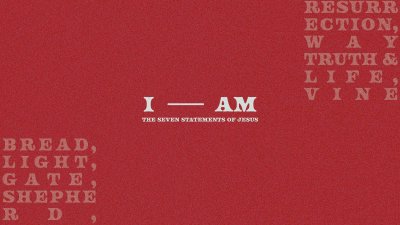John 11 is a story of resurrection. But it isn’t Jesus’ resurrection. Just before he’s handed over to the Roman authorities to be crucified, Jesus brings his friend Lazarus back to life from the grave. In doing so, he demonstrates both his power over death, and his sympathy in the midst of it. This story reminds us of the authority Jesus has over the grave, but it also reminds us of the severity of our sin. Death is the result of our rebellion against God and his Kingdom. Yet despite our guilt, God still heals us. The resurrection of Lazarus points forward to the resurrection of Jesus, and also to our resurrection. The message of Easter is that like Lazarus, we are dead in our sin and broken from the source of life. But also like Lazarus, Jesus forgives us and promises to one day resurrect us too.
John 11 CSB






